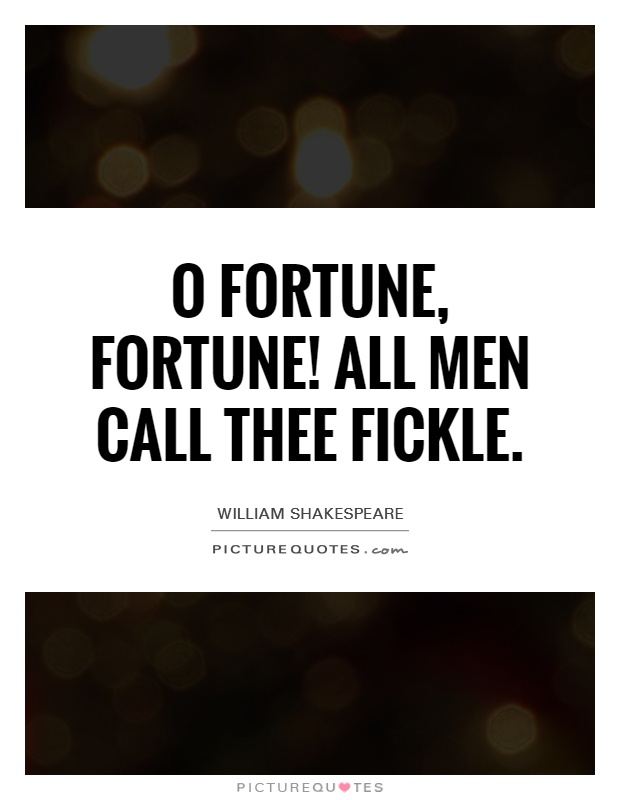O fortune, fortune! All men call thee fickle

O fortune, fortune! All men call thee fickle
In William Shakespeare's works, the theme of fortune and fate is a recurring motif that is explored in various ways. One of the most famous quotes related to this theme is "O fortune, fortune! All men call thee fickle." This line is spoken by the character Romeo in the play "Romeo and Juliet" and reflects the idea that fortune is unpredictable and can change at any moment.Throughout Shakespeare's plays, characters often grapple with the idea of fate and how it influences their lives. In "Macbeth," for example, the titular character becomes obsessed with the idea of his own destiny and the prophecies that foretell his rise to power. However, as the play progresses, it becomes clear that Macbeth's actions are driven by his own ambition and desire for power, rather than any predetermined fate.
Similarly, in "Hamlet," the protagonist struggles with the idea of fate and whether he is truly in control of his own destiny. Hamlet's famous soliloquy "To be or not to be" reflects his internal conflict over whether to accept his fate or to take control of his own life.












 Friendship Quotes
Friendship Quotes Love Quotes
Love Quotes Life Quotes
Life Quotes Funny Quotes
Funny Quotes Motivational Quotes
Motivational Quotes Inspirational Quotes
Inspirational Quotes